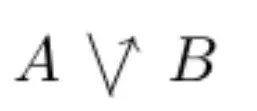It is the least Upper Bound. Assumes the Completeness Axiom Most of the time it is the Max, but it can also exist if the maximum doesnt like cases
Notation
 Or
Or
Definition
Let and , we say that is in the Supremum of if:
- is an upper bound of ()
- if is an upper bound of , then
Alternate Definition (Approximation Theorem)
We can approximate as close as we wish using elements of . Given any tolerance , then the max - is not an upper bound. Theorem: Assume is an upper bound of a non-empty set , then s.t .
Proof:
Note and is bounded above (since is an upper bound) so:
- exists by Least Upper Bound Property of Completeness Axiom () Assume Let be arbitrary. Let We want to assume for contradiction that b is an upper bound. This means , . . This contradicts that is the least upper bound. Therefore is an upper bound is a contradiction. Thus Thus () Let be arbitrary. Assume s.t Assume for contradiction that is an upper bound and Then Then Choose Then Then This means that B is no longer a upper bound. This is a contradiction. So, our was a contradiction. Thus So